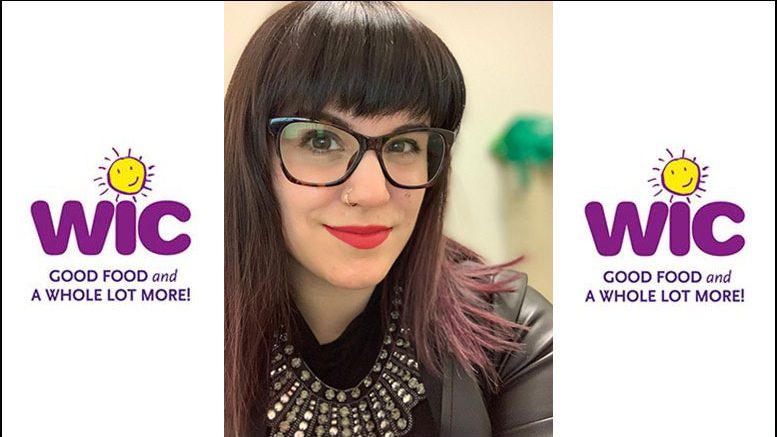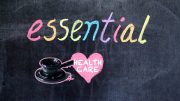Women, Infants and Children Program, WIC, seeks to bring more accessible services to LGBTQIA+ identities & diverse families
By: Kristen O’Brien*/Special to TRT—
I was eager to find a job within my field after graduating from college in 2012 with a Nutrition and Dietetics degree. I was slightly disadvantaged because I was not a Registered Dietitian, but I had always longed to work in the community. After searching for several months, I came across a WIC (Women, Infants, and Children) Nutritionist role that sparked my interest, and the rest, as they say, is history.
As soon as I stepped through the door, or perhaps when the first baby climbed into my lap, I fell in love with working with the WIC community. Working with infants, children, pregnant and postpartum participants has brought me so much joy to my everyday life. Being able to help them increase their self-efficacy, access healthier food options, and nutritional support continues to drive me to do more for this population.
I have worked with WIC participants from all different backgrounds, races, ethnicities, and family structures over the years. While WIC strives to create an environment that is diverse and welcoming to all, there are eligible populations that may not be receiving the adequate support they deserve, most notably the LGBTQIA+ community. I hope to initiate conversations that will create a foundation for change within WIC to be more inclusive and adaptive to better support the LGBTQIA+ community.
There have been many positive changes within the WIC program since 2012, including the focus on nutritious, scientific-based foods in the food package, the shift toward partnering with local farmers for fresh produce, and the creation of e-WIC electronic benefits card for a better and simpler shopping experience. However, there has been little change concerning outreach towards the LGBTQIA+ community.
As part of my graduate studies, I worked with Massachusetts WIC in partnership with the Fenway Institute in Boston to develop a comprehensive training addressing LGBTQIA+ inclusive language and terminology and it was administered for over 200 staff this spring. In addition to this training, Massachusetts WIC has also been proactive in updating marketing tools to be more inclusive of diverse family structures and gender-neutral language. They hope to eventually assess their record system online to include these changes automatically.
My agency has also been increasing efforts to highlight diverse family structures on social media and host tables at local Pride events to introduce potential participants to WIC services. Our area serves one of the largest LGBTQIA+ communities per capita in the nation. Working with this community is not new for our program; however, as a whole, I believe we can do better in making WIC even more accessible to LGBTQIA+ participants.
WIC agencies and clinics can better support the LGBTQIA+ community by:
- Having inclusive, welcoming signage supporting the LGBTQIA+ community — For example, hanging a rainbow flag in offices or signs that say, ‘All are Welcome’ or ‘LGBTQIA+ Safe Zone.’
- Utilizing imagery in communication, marketing, and outreach displays diverse family structures — i.e. two moms, two dads, a trans father chest feeding, etc.
- Updating language in educational tools, paperwork, and documentation to include gender-neutral terminology and pronouns. For example, using ‘they’ or ‘child’ or ‘baby’ instead of ‘he’ or ‘she.’ Additionally, avoid using ‘mom’ or ‘dad,’ ‘husband’ or ‘wife,’ and use ‘parent’ or ‘guardian’ and ‘partner’ or ‘spouse.’
- Changing bathroom signage to be more inclusive of all gender identities — For example, ‘All-Gender Bathroom,’ ‘Gender-Neutral Bathroom,’ or ‘Family Bathroom.’
- Making LGBTQIA+ training a mandatory priority for staff.·
Additionally, USDA and FNS can better integrate and promote inclusivity for LGBTQIA+ WIC families by:
- Creating national campaigns that utilize images of diverse family structures and update language in educational tools to include gender-neutral terminology and pronouns like above.
WIC undoubtedly is a great program that has positively changed my life and continues to significantly impact the lives of many others by improving health outcomes through increasing access to nutritious foods and education. As WIC continues to enact positive changes, I am optimistic that local programs and agencies, as well as state and federal programs like USDA and FNS, will move toward improving accessibility and inclusivity for LGBTQIA+ individuals and families within WIC. As a Queer-identifying person myself, this work is hugely purposeful. I will continue to advocate for WIC to become the utmost equitable program for all eligible participants.
*Kristen O’Brien is the Senior Nutritionist for the Franklin/Hampshire/North Quabbin WIC Program in Greenfield, Massachusetts. She is a Registered Dietitian and a Certified Lactation Counselor and a graduate student at the University of Massachusetts in the Public Health Nutrition Program.







